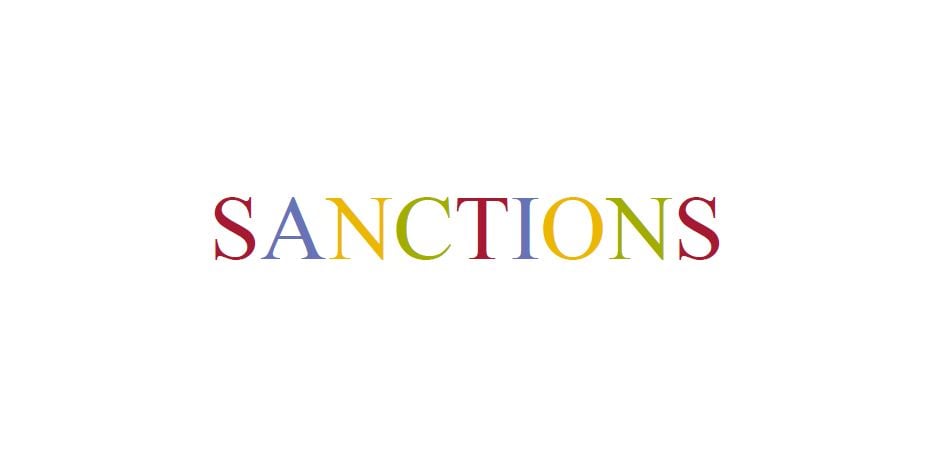Following the Democratic People’s Republic of Korea’s (“DPRK” or “North Korea“) latest nuclear test and rocket launch on 6 January 2016 and 7 February 2016 respectively, the UN Security Council (“UNSC“) unanimously adopted Resolution 2270 (2016) (the “UN Resolution“) on 2 March 2016. The UN Resolution contains far-reaching sanctions aimed at cutting off funds for DPRK’s nuclear and other banned weapons programmes, whilst avoiding “adverse humanitarian consequences” for civilians. The UN Resolution adds sectoral sanctions, broadens the scope of the existing financial sanctions and arms embargo, imposes new measures targeting proliferation networks, and expands the list of designated individuals and entities. The sanctions contained within the UN Resolution include the following:
- prohibition on export from North Korea of coal, iron, and iron ore being used to fund North Korea’s nuclear or ballistic missile programmes;
- prohibition on export to North Korea of aviation fuel, including kerosene-type rocket fuel;
- prohibition on export from North Korea of gold, titanium ore, vanadium ore, and rare earth minerals;
- prohibition on the opening of new branches, subsidiaries, or representative offices of North Korean banks in member states;
- prohibition on financial institutions establishing new joint ventures, or maintaining or establishing correspondent relationships with North Korean banks;
- requirement for states to close North Korean banks in their jurisdictions and terminate banking relationships with them within 90 days;
- obligation to inspect all cargo leaving or entering North Korea by sea or air;
- requirement for states to expel North Korean diplomats who engage in “illicit activities”;
- ban on all sales or transfers of small arms and light weapons to North Korea;
- prohibition on the export to and from North Korea of several new luxury items, including snowmobiles, recreational water vehicles, luxury watches, and lead crystal;
- prohibition on North Korea chartering vessels or aircraft, and call on countries to de-register any vessel owned, operated, or crewed by North Korea;
- requirement for states to impose asset freezes on entities linked to North Korea’s nuclear and missile programmes (previously they were only encouraged to do this); and
- requirement for states to impose asset freezes and travel bans on 16 people and 12 entities. 31 ships owned by Ocean Maritime Management Company are also designated.
Following the adoption of the UN Resolution, the US and the EU have introduced new sanctions against DPRK.
US Sanctions
On 2 March 2016, the US Treasury Department’s Office of Foreign Assets Control (“OFAC“) announced that it and the US State Department had designated 17 parties (i.e., 5 entities and 12 individuals) on the List of Specially Designated Nationals and Blocked Persons (“SDN List“) under the US Government’s North Korea and Non-Proliferation Sanctions programs (the “March 2nd Designations“). In a press release, OFAC stated that the March 2nd Designations target parties with ties to the Government of North Korea, its nuclear and weapons proliferation efforts, and activities relating to DPRK’s proliferation of weapons of mass destruction (“WMDs“). Two of the individuals included in the March 2nd Designations were targeted in the UN Resolution. OFAC also stated in its press release that these designations complement the “North Korea Sanctions Policy Enhancement Act of 2016“, which was signed into law by President Obama on 18 February 2016. Our blog post on this legislation is available here. The parties added to the SDN List as part of the March 2nd Designations were designated under Executive Order 13382, which targets WMD proliferators and their supporters, as well as Executive Order 13687, which targets the Government of North Korea, the Workers’ Party of Korea, and their supporters. Of note, the March 2nd Designations include: the Workers’ Party of Korea Central Military Commission, the National Defense Commission, the National Aerospace Development Administration, and the Ministry of Atomic Energy Industry. US Persons are generally prohibited from dealing, directly or indirectly, with parties listed on the SDN List as well as with any entities 50% or more owned by one or more SDNs.
EU Sanctions
Following the adoption of the UN Resolution, the European Council adopted Regulation (EU) 2016/315 and Council Decision (CFSP) 2016/319 of 4 March 2016, adding 16 individuals and 12 entities to its list of designated persons (“DPs“). The designations include several individual representatives of Tanchon Commercial Bank and the Korea Mining Development Trading Corporation, and entities such as the Reconnaissance General Bureau (DPRK’s top intelligence organisation), the Ministry of Atomic Energy Industry, the Munitions Industry Department, Daedong Credit Bank, and Korea Kwangson Banking Corporation (“KKBC“). EU sanctions prohibit dealing, directly and/or indirectly, with EU DPs, as well as with entities “owned or controlled”, directly or indirectly, by DPs.
Swiss Sanctions
The Swiss Confederation amended its list of DPs on 4 March 2016, adding 16 individuals and 12 entities. Like the EU, Switzerland designated individuals including representatives of Tanchon Commercial Bank and the Korea Mining Development Trading Corporation, and entities including the Reconnaissance General Bureau, the Ministry of Atomic Energy Industry, the Munitions Industry Department, Daedong Credit Bank, and KKBC.



